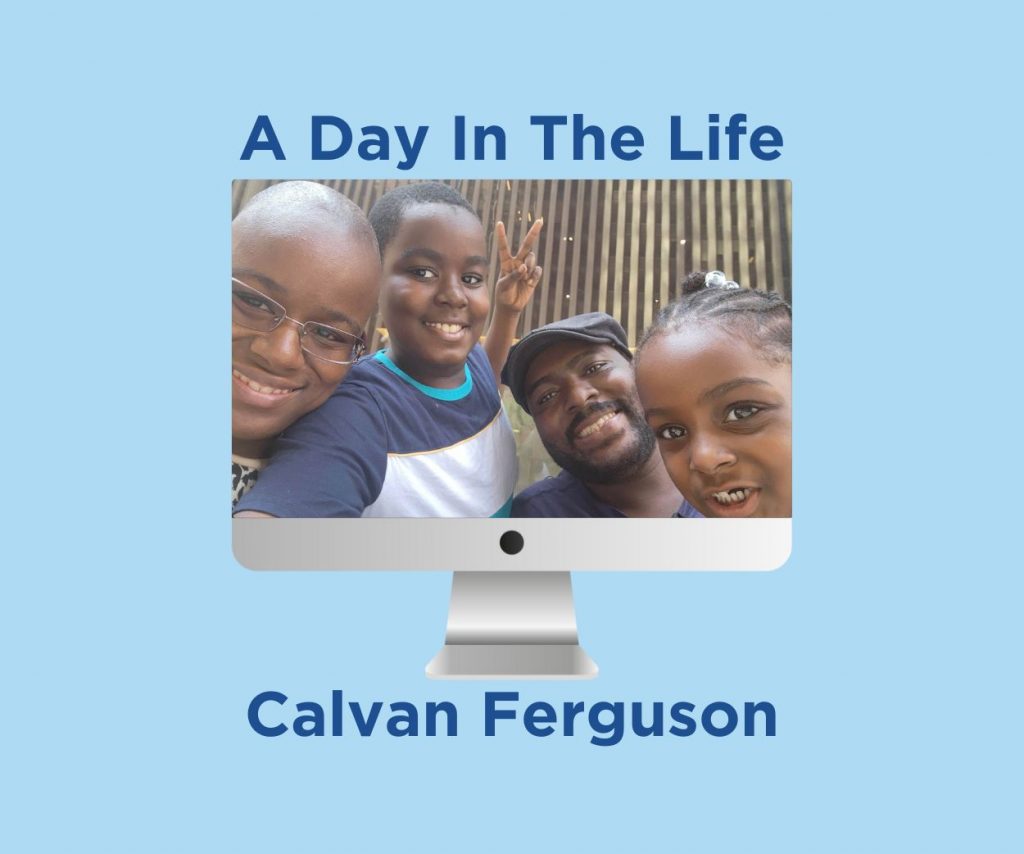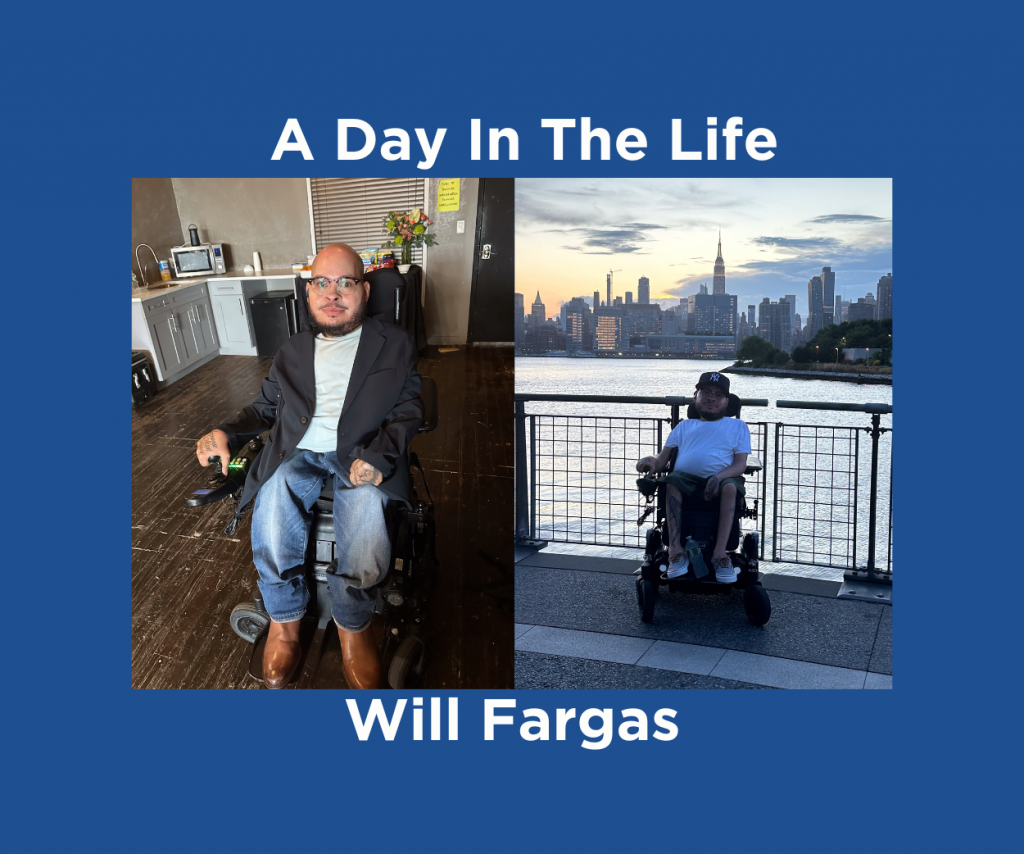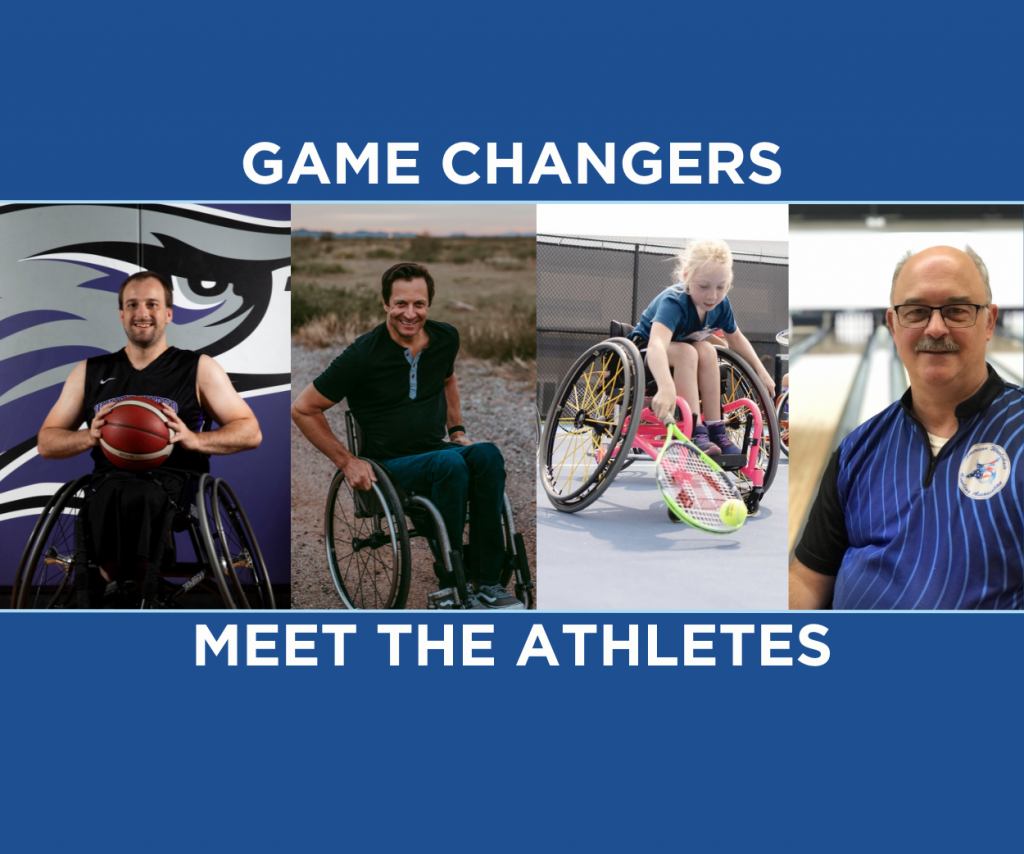Social Sensations
How disability advocates are changing the narrative on social media
By Gabe Trujillo
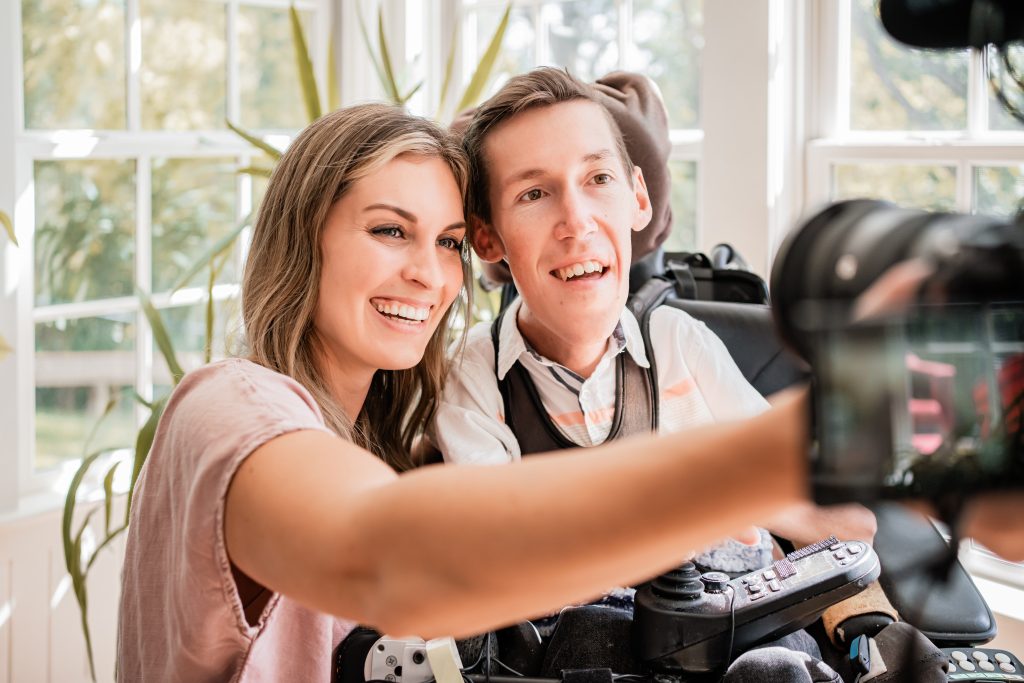
Vacation selfies, tortilla challenges and pink sauce. No, it’s not the beginning of a bad joke, it’s a list of just a few of the many things you can find on social media. But beyond all of the viral trends and media, something incredible is happening. Several social media influencers are using their online platform to help change the narrative about the lives of people with disabilities.
An Accidental Platform
Shane and Hannah Burcaw
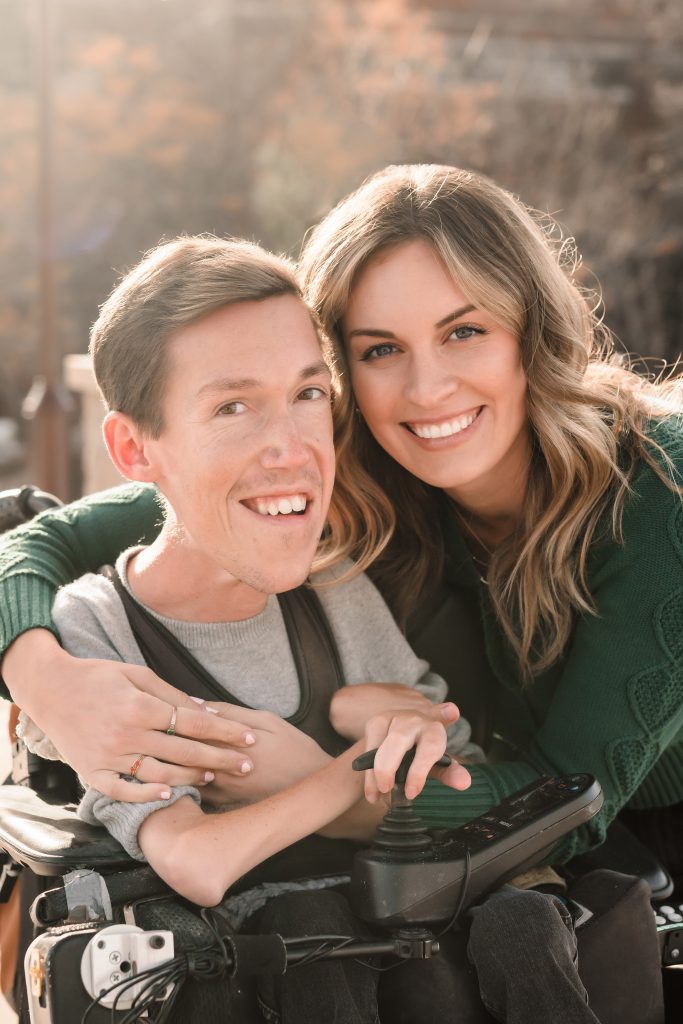
Shane and Hannah Burcaw are two such creators in this growing community. Known as Squirmy and Grubs on their YouTube channel, they are giving their audience an intimate look into their lives as an inter-abled couple. Shane lives with Spinal Muscular Atrophy and uses his platform to show others that being disabled doesn’t mean you can’t live a successful, fulfilling life. “Visibility and representation has come a long way in the last few years for disability,” Shane says.
Shane and Hannah’s path to becoming content creators and advocates began by accident, the couple says, after they uploaded a video of a road trip for family and friends. Since starting their YouTube
channel in 2018, they have built a follower base of more than 946,000 subscribers.
Shane and Hannah Burcaw are two such creators in this growing community. Known as Squirmy and Grubs on their YouTube channel, they are giving their audience an intimate look into their lives as an inter-abled couple.
Shane lives with Spinal Muscular Atrophy and uses his platform to show others that being disabled doesn’t mean you can’t live a successful, fulfilling life. “Visibility and representation has come a long way in the last few years for disability,” Shane says.
Shane and Hannah’s path to becoming content creators and advocates began by accident, the couple says, after they uploaded a video of a road trip for family and friends. Since starting their YouTube channel in 2018, they have built a follower base of more than 946,000 subscribers.
“We were just documenting our lives,” Shane says about his early life on YouTube. “But now we had this new audience and suddenly we were like ‘OK, we have a platform now.’”
According to Shane, he and Hannah weren’t intentionally trying to normalize disability, but as the channel grew, they realized it could be a vehicle to advocate for the disability community while sharing their story. During their time together, the couple has shared insight into everything from traveling with a wheelchair to how their evening sleeping routine works.
And while those with disabilities are one of the largest minority groups in the country, channels like Squirmy and Grubs are most people’s only exposure to disability.
“We’ve definitely gotten comments from people, like non-disabled people saying that they’ve learned so much from our content,” Hannah says. “They had no experience with disability before.”
A Fun and Fruitful Life
Lolo Spencer
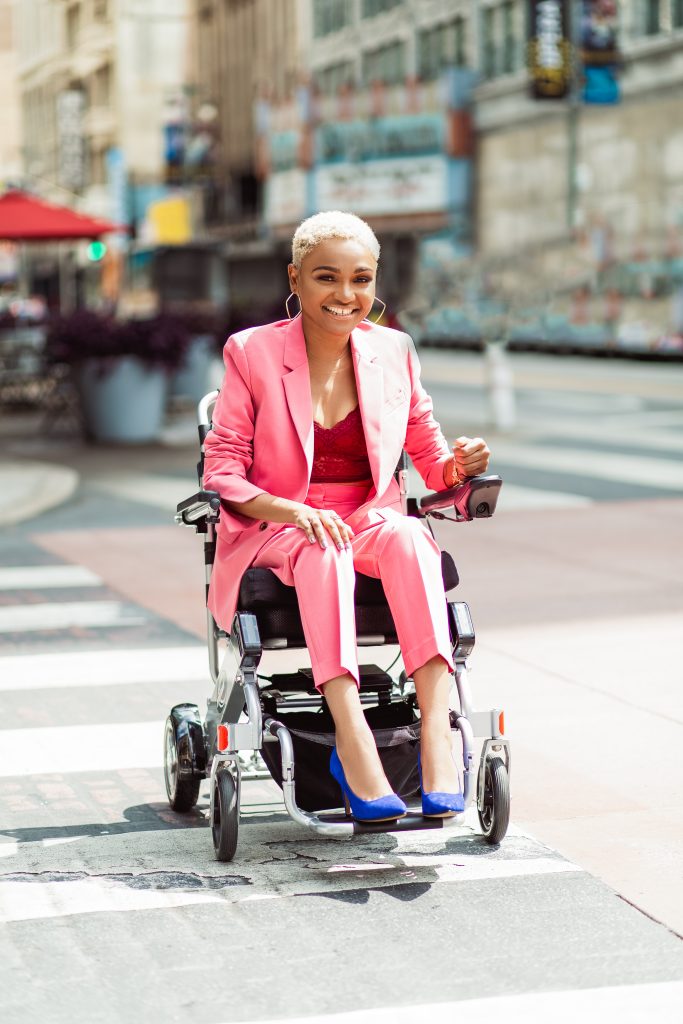
Another one of those people sharing their everyday lives online is disability influencer Lauren “Lolo” Spencer. As an advocate, model and actress, Spencer has amassed quite an online following. Her 58,000 Instagram followers and nearly 15,000 YouTube subscribers follow her adventures as a wheelchair user. Diagnosed with ALS at 14, Spencer now uses an electric wheelchair to navigate through her career and personal adventures.
After earning a degree in TV production and wanting to rebel against a former employer who encouraged conformity, she branched out on her own and her
YouTube channel was born.
“What am I good at and what do people want to know,” Spencer said when she talked about determining what her channel would be about. “Everyone always wanted to know, ‘How do you live positively with the disability.’”
As Spencer began sharing her life on social networks like Instagram, Facebook and Twitter, people began to see that a
wheelchair user can live a fun and fruitful life. And then followers began commenting and asking her questions about disability.
“This content is bigger than me. It’s bigger than just my own lived experience,” Spencer proclaimed.
“And I should talk about more of what’s happening than just partying and doing this and doing that.” You can now find Spencer filming a new season of “The Sex Lives of College Girls.” The popular teen drama, created by Emmy Award-nominated writer/producer Mindy Kaling and Justin Noble, is in its second season on HBO Max. Spencer will continue to promote disability awareness on social media.
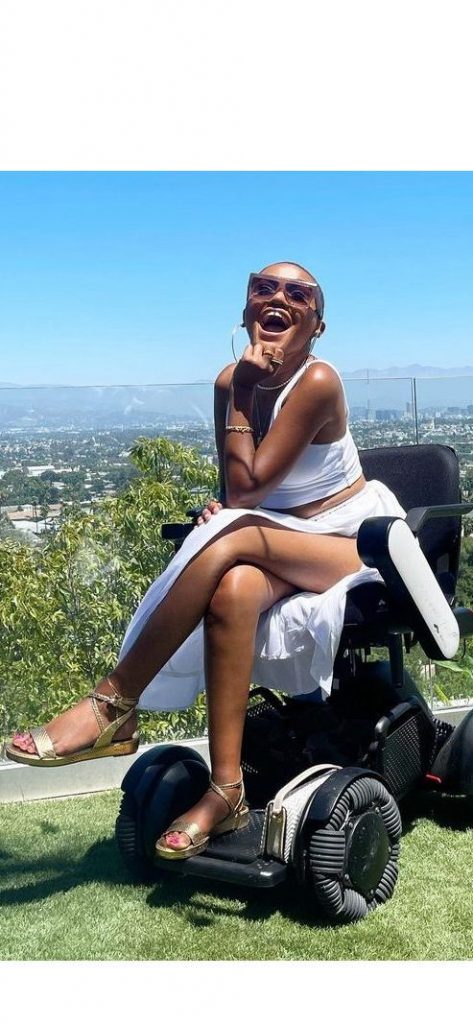
Parenting with Purpose
Glenn Moscoso
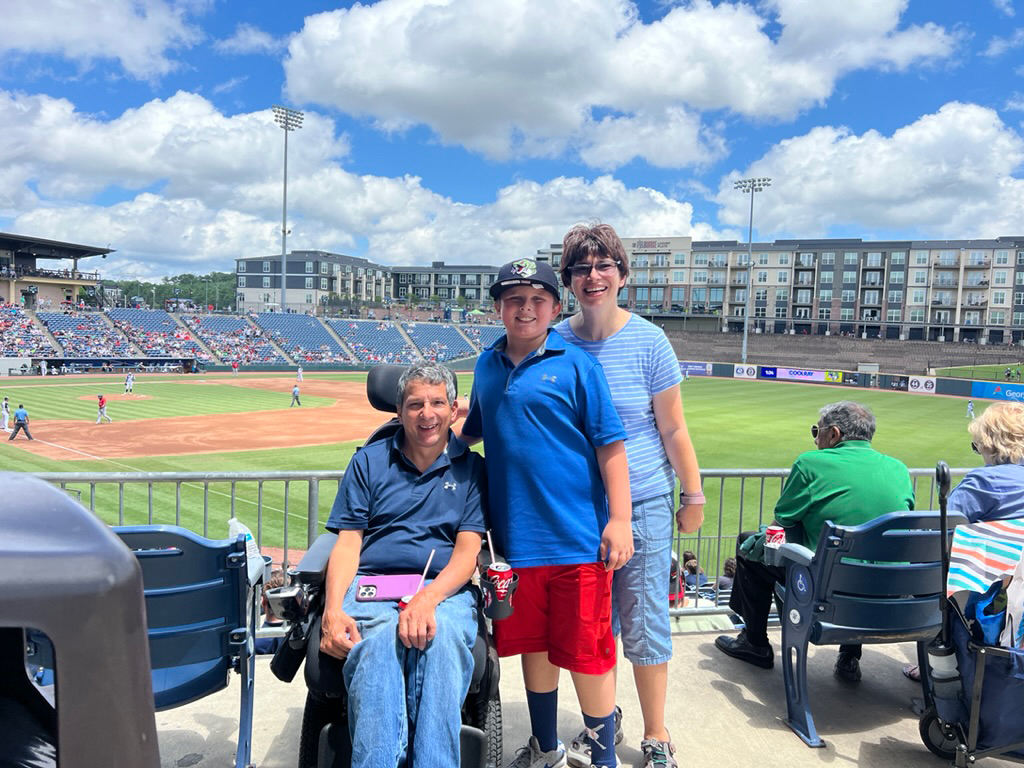
While Spencer offers unique insight into the entertainment world, another influencer is sharing his perspective on the world of parenting while disabled.
Glenn Moscoso is a 51-year-old blogger with cerebral palsy who’s using his online platform to share how he navigates fatherhood with a physical disability. At Wheelchair Daddy (wheelchairdaddy.com), Moscoso explores a variety of topics designed to educate and inform, ranging from posts about essential products for wheelchair parents of newborns to ideas about kid-approved adaptive activities kids and parents can
share as well as general disability lifestyle content.
While CP has impacted Moscoso’s speech and mobility, technology has allowed him to share his unique parenting perspective with a global audience for more than nine years.
“I like social media because I can reach a wider audience and therefore hopefully educate more,” Moscoso says. “The instant feedback and engagement are very interesting and engaging.”
Moscoso added that online platforms like social media give him the chance to share short snippets of his life that can spur productive dialogues about disability. While the dialogues are changing constantly, he says deciding on what to post can sometimes be a struggle. “I go back to why I started blogging and share what will foster the original purpose,” he says. “But it’s always evolving and changing.”
Along with the content, Moscoso is sometimes hesitant to share his actual voice online but hopes to overcome that hesitancy. “I have a speech impediment. I’m very self-conscious of how my voice sounds,” he states. “So I’ve been a bit hesitant about doing any reels or video. Hopefully, I’ll get over that hesitation.” For now, Moscoso continues to build his following online and share his unique perspective.
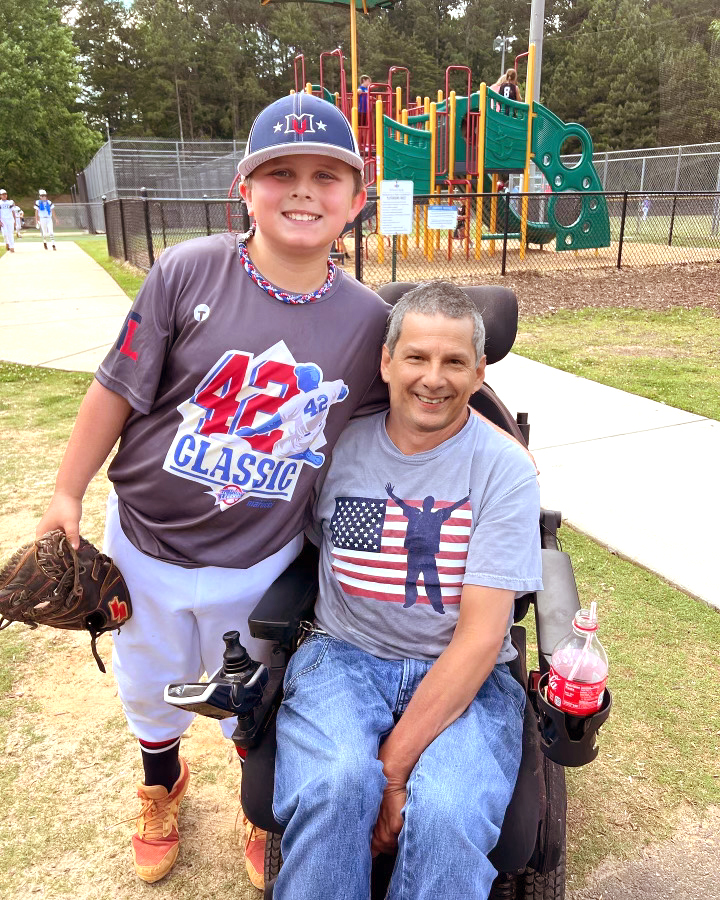
According to the Center of Disease Control, 26% of people in the United States have some type of disability.
Those with disabilities continue to be one of the largest minority groups in the country and disability awareness is growing. With the help of people like Shane and Hannah Burcaw, Lauren Spencer and Glenn Moscoso, the narrative behind the disabled community will continue to normalize.
More Stories
Related Articles
A Day in My Life: Calvan Ferguson
Calvan Ferguson shares about his daily life, the importance of inclusion and accessible transportation and cultivating a positive attitude. Calvan Ferguson believes deeply in the…
A Day In My Life: Will Fargas
NSM client Will Fargas takes us along for the day as he heads to work in Manhattan For Will Fargas, most days start pretty early. …
Game Changers
National Seating and Mobility clients and athletes discuss sports, active living and keeping their chairs competition-ready. Sports can be an important part of living an active,…
